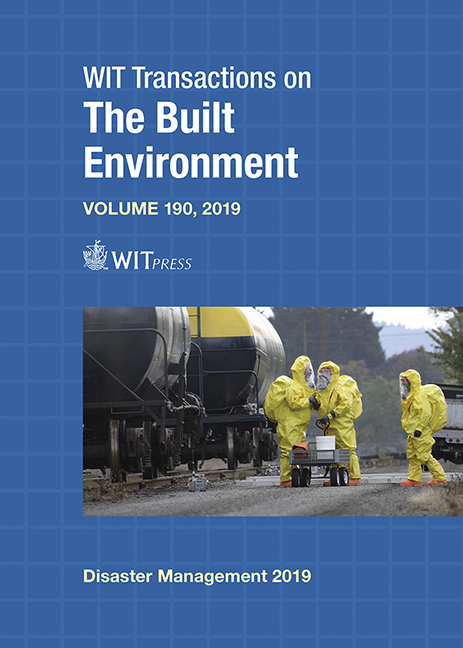IMPORTANCE OF SELF-HELP AND MUTUAL ASSISTANCE AMONG MIGRANTS DURING NATURAL DISASTERS
Price
Free (open access)
Transaction
Volume
190
Pages
13
Page Range
65 - 77
Published
2019
Size
271 kb
Paper DOI
10.2495/DMAN190061
Copyright
WIT Press
Author(s)
MARIA MAKABENTA IKEDA, ARLENE GARCES-OZANNE
Abstract
In this study, we examine the factors that influence how migrants cope after a natural disaster. We surveyed two different samples of migrants: Filipinos living in Japan after the 2011 Great East Japan earthquake and tsunami and Filipinos living in New Zealand during the 2010/11 Christchurch earthquakes. We examine their risk perception and capability to manage risk on two levels: self-help and mutual assistance and we hypothesize that if migrants are proactive in information gathering and community involvement, they are more likely to be resilient, to self-help and to assist others. Survey responses were analysed using a multinomial logit model yielding results that show how socioeconomic factors affect migrant capability for self-help and mutual assistance and dependence on public or government assistance. Our results suggest that the migrants with the following characteristics are likely to be resilient: (1) long-staying, educated, and permanently employed; (2) engaged in communities, (3) share/discuss disaster risk-reduction (DRR) information; (4) those who have a lower perception of risks and less conscious of other’s needs are less likely to be resilient. On the other hand, testing for vulnerability, we find that the average probability of experiencing some serious damage is higher, for migrants: (1) without social or community involvement, (2) who are only somewhat conscious of the risks and needs of others, and (3) have no or few sources of information.
Keywords
social cognitive theory, self-help, self-efficacy, mutual assistance, bayanihan as collective action, 2011 Great East Japan earthquake and tsunami, 2010/2011 Christchurch earthquake, Filipino migrants, coping, multinomial logit




